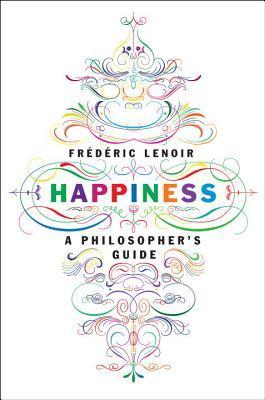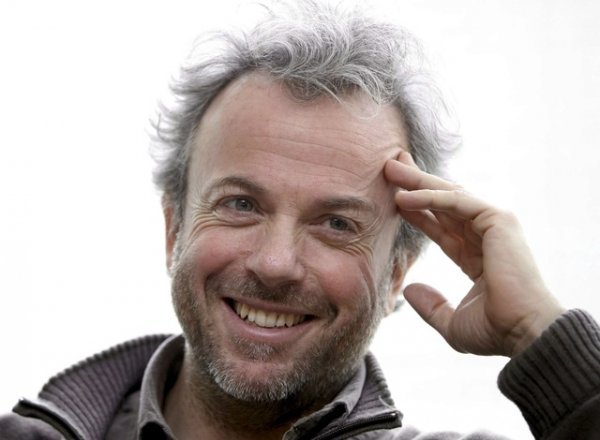
A huge bestseller in Europe, Frederic Lenoir’s Happiness is an exciting journey that examines how history’s greatest philosophers and religious figures have answered life’s most fundamental What is happiness and how do I achieve it? From the ancient Greeks on—from Aristotle, Plato, and Chuang Tzu to the Buddha, Jesus, and Muhammad; from Voltaire, Spinoza, and Schopenhauer to Kant, Freud, and even modern neuroscientists—Lenoir considers the idea that true and lasting happiness is indeed possible. In clear language, Lenoir concisely surveys what the greatest thinkers of all time have had to say on the subject, and, with charming prose, raises provocative · Do we have a duty to be happy? · Is there a connection between individual and collective happiness? · Is happiness contagious? · Is there a difference between pleasure and happiness? · Can unhappiness and happiness coexist? · Does our happiness depend on our luck? Understanding how civilization’s best minds have answered those questions, Lenoir suggests, not only makes for a fascinating reading experience, but also provides a way for us to see us how happiness, that most elusive of feelings, is attainable in our own lives.
Author

3 June 1962. Birth in Madagascar.
- His parents return to France and move to the country to raise their four children, born in Morocco and Madagascar. 1970-1979. He moves to Paris. An unruly student, he is particularly ill-disposed to doing schoolwork and is sent to three different lycées (Victor Duruy, Buffon, Camille Sée). As a teenager he reads Hesse and Dostoyevsky, kindling his interest in existential questions. At 15 he develops a passion for philosophy after reading Plato’s Dialogues, and in astrology from reading books by André Barbault. 1980-1985. The Swiss psychologist Carl Gustav Jung has a profound effect on his intellectual direction, triggering a desire to study mankind’s great myths and religions. After an early fascination with Asian spirituality, in particular Tibetan Buddhism, discovered through the work of Chogyam Trungpa, he develops an interest in the Kabbalah and begins taking classes in the symbolism of Hebrew letters. He has no particular interest in studying Christianity, however. His Catholic upbringing, although very liberal, had focused too much on dogma and morality. Then, at 19, he reads the Gospels for the first time, and is amazed by them. He begins studying philosophy at the University of Fribourg, in Switzerland, with his childhood friend Emmanuel Rouvillois, who later becomes a monk by the name of Brother Samuel; there, he meets two crucial and outstanding professors: the Dominican philosopher Marie-Dominique Philippe (with whom he writes a book of interviews, Les trois sagesses, in 1994) and the philosopher and Talmud scholar Emmanuel Lévinas who, as a testament, leaves him a fine text on ethics in his book Le Temps de la responsabilité (1991). Parallel to his philosophy studies, he goes on a personal spiritual quest that leads him to spend several months in Israel and India, as well as in Christian hermitages and monasteries in France.
- As editor of the religion department at Editions Fayard, he publishes several books examining philosophical and spiritual themes.
- He resigns from his position as editor to devote more time to academic research and writing, and begins work on a doctoral thesis on Buddhism in the West at the Ecole des Hautes Etudes en Sciences Sociales.
- Passionate about ecological issues, he helps found the association ‘‘Environnement sans frontières.’’ In 2003 he publishes a book of interviews with his friend Hubert Reeves, who sounds the alarm on the risks threatening the planet. (Mal de Terre).
- He is appointed associate researcher at the Ecole des Hautes Etudes en Sciences Sociales (EHESS). Following in the footsteps of Edgar Morin, one of his intellectual mentors, he takes on the issue of religion in a multi-disciplinary approach combining philosophy, sociology and history.
- He writes l’Encyclopédie des religions, conceived and compiled with Ysé Tardan-Masquelier, (2500 pages, 2 volumes, 150 collaborators). 1996-2000. He writes for L’Express on a regular basis.
- He writes and directs an international study about sects for television with Lolande Cadrin-Rossignol. The documentary series, entitled ‘‘Sectes, mensonges et idéaux’’ (‘‘Sects, Lies and Ideals’’), is broadcast in France on the Cinquième channel and in numerous other countries. He also co-writes a documentary about the Dalai Lama that is broadcast on Canal +, and a series of three 52’ episodes on the Cinquième channel entitled ‘‘Dieu a changé d’adresse’’ (‘’God has changed his address’’). 1998-2005. He writes a number of books − some alone, others with Catherine David and Jean-Philippe de Tonnac − of interviews with such diverse figures as Abbé Pierre, Umberto Eco, Stephen Jay Gould, Jean Vanier, Hubert Reeves and Jean-Claude Carrière.